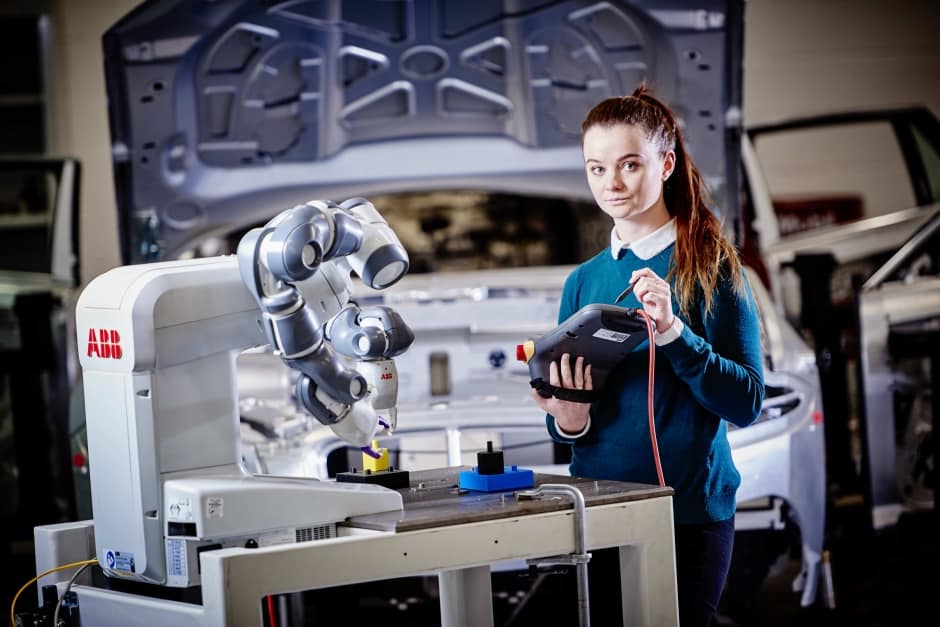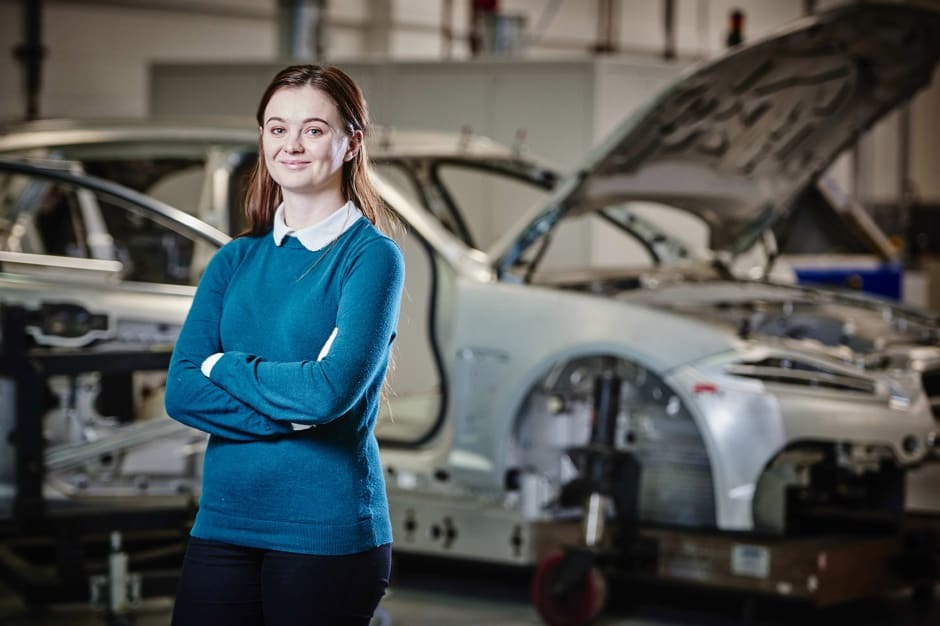
Working on a project that will create the UK’s largest independent vehicle battery manufacturer is a pretty big job for a 22-year-old still fresh from graduating just fourteen months ago.
For Alicia Prior, a Manufacturing Engineer at Unipart Manufacturing, it’s exactly the type of challenge she had set her sights on when she became one of the first students in the country to take part in the Institute for Advanced Manufacturing and Engineering (AME).
READ OUR A&A INTERVIEW WITH AME DIRECTOR PROF CARL PERRIN HERE
In essence, she was a guinea pig on the ‘Faculty on the Factory Floor’ course that was specifically created to deliver more industry-ready graduates in a bid to ease the manufacturing skills crisis.
Its roots lay firmly in getting BEng degree students to immediately apply the theory they’ve learned on real-world manufacturing projects with Unipart in Coventry and across a number of international placements in Europe and the US. Results have been impressive and there is an appetite for the model to be scaled up quickly.
Ask Alicia about it and she immediately points to her current role working on the Hyperbat project, a ground-breaking collaboration between her employer Unipart Manufacturing and Williams Advanced Engineering that will result in a new multi-million pound high-tech facility capable of producing batteries for future hybrid and electric vehicles.
“I’ve lost count of the number of skills I picked up during my time at AME that I have used in the early days of my new role.
“And it’s not just the core one likes Design for Manufacture (DFM) or Process Failure Mode Effects Analysis (PFMEA), but the more softer skills that sometimes don’t get taught during a standard course.”

Alicia, who graduated alongside six of her peers, explained: “Gaining people skills was one of the big pluses. I was really shy when I started and found it hard to talk to new people.
“The courses dictated that I had to go to different people at some pretty senior levels in Unipart to find out information for my projects and this saw my confidence grow considerably. You also appreciate how your role impacts on other people and the importance of meeting deadlines, especially in manufacturing.”
A significant number of the relationships she forged during her time at AME have come in useful in the start-up phase of Hyperbat.
Alicia’s role is varied and ranges from selecting equipment suppliers for the new battery facility and DFM with the design house to ensure the product can be made within the budgets given by the customer…expected to be the Aston Martin Rapide E.
She will also be jointly responsible for the build of the dedicated manufacturing cells in Coventry, optimising the layout and mitigating risks throughout the development stage.
“AME taught me all the manufacturing skills so I could get stuck in straight away, there was no standing around and trying to learn what I needed to do,” added Alicia.
“One of my real-world projects during the course was laying out a new line and this is now helping me with planning for the battery cell and ensuring we maximise throughput and quality.”
Like most in industry, the Manufacturing Engineer believes more needs to be done to showcase the sector and ensure young people consider it as a career with lots of opportunities.
“Who would have thought two years ago that I’d be playing a significant role in making an Aston Martin move, but that’s exactly what I’m doing. We are working on the next generation of powertrain and the opportunities for progression are huge – I’ve already spent time on international placement in the US with Subaru.”
She concluded: “Make no mistake, industry isn’t easy and there is a different problem to solve pretty much every day.
“What you will be doing is making a real difference and the decisions you take could help create environmentally friendly cars, make aircrafts lighter and provide help with social mobility. It’s never boring, that’s for sure!”








Water Sector Talent Exodus Could Cripple The Sector
Well let´s do a little experiment. My last (10.4.25) half-yearly water/waste water bill from Severn Trent was £98.29. How much does not-for-profit Dŵr...